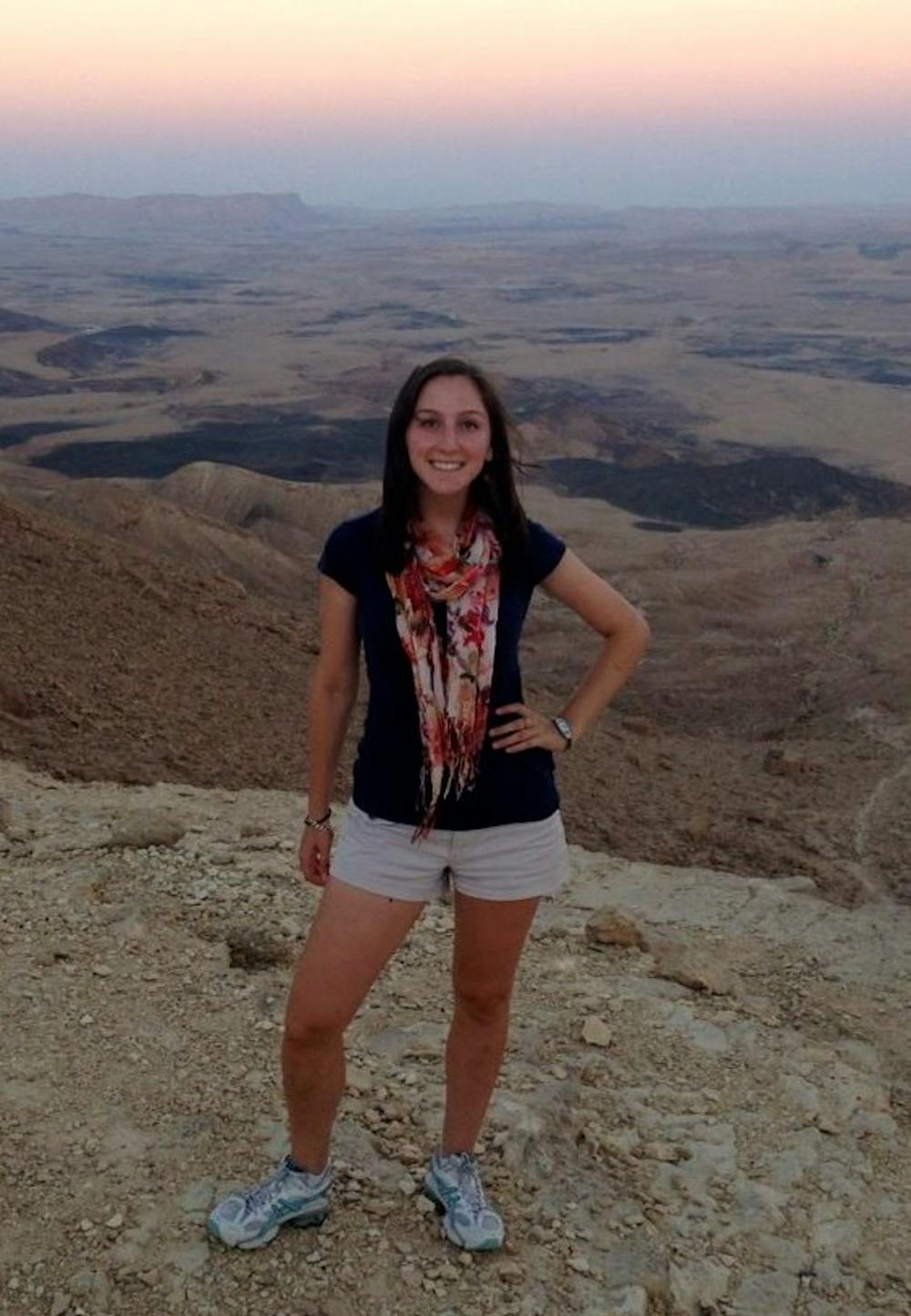When third-year College student Rachel Schwartz began her internship at the International Institute for Counter-Terrorism, she had no idea her summer would lead to world-renowned terrorism experts reading her research.
After about a month of research, the institute took a special interest in Schwartz’s work — ultimately publishing her final thesis, “Case Study: Syria’s Chemical and Biological Weapons Program and the Use of These Weapons in the Syrian Civil War Today.”
“I was just awestruck,” Schwartz said. “I still am. It’s crazy to think the research was good enough to use for [leading researchers] to use themselves. It [is] a huge compliment.”
For Schwartz, however, this story has been long in the making. Her interest in chemical weapons is nothing new — when a biosecurity speaker spoke to her high school’s Science Honor Society chapter, Schwartz realized the topic served as a perfect hybrid of her interests.
During her second year at the University, Schwartz began researching terrorism and chemical weapons on her own time. Batten Prof. Fred Hitz’s course, Anti-Terrorism and the Role of Intelligence, provided a venue for Schwartz to analyze Syrian chemical weapons academically.
“[Schwartz] was very interested in the subject matter, especially as it might apply to Israel,” said Hitz, who later recommended Schwartz for the internship program. “She sought a job that would take her to Israel and allow her to continue her work in the anti-terrorism field.”
She began emailing professors around the country who specialize in bioterrorism. Soon, she hit it off with a professor who worked at a private college in Israel.
Eventually, he referred her to the International Institute for Counter-Terrorism, which accepted her application for an internship. The job required interns to research a specific topic of interest, both to the intern as well as the institute. Schwartz naturally formed her thesis around the use of chemical weapons in Syria.
“That was the amazing part about the institute,” Schwartz said. “They were willing to take someone who was a new intern and see the purpose within furthering their research for the Institute [itself].”
While completing her research, the institute invited Schwartz to work at an executive masters program, which held a series of lectures about terrorism. It was while at the lecture series Schwartz submitted her final paper.
“Normally, you get plenty of feedback, which I was willing to work [with], because I poured my heart into this paper,” Schwartz said. “But all I get from my boss is, ‘Thanks! This is great!’ I was unsure of what that actually meant, and had a lot of questions.”
After her internship concluded, she received an email informing her that her research had been published on the institute’s website.
“It was crazy — I thought [my paper] was just going to be used by the institute for their own research,” Schwartz said.
Soon thereafter, Schwartz received another email from a group of leading researchers on the international situation in Syria, notifying her they wished to expand upon her research. They went on to cite her research in a paper presented at an international counterterrorism conference.
“If I was flabbergasted before, I was speechless [then],” she said.
With school back in session, Schwartz continues to study the Syrian crisis through a research class on civil wars. Looking forward, she also hopes to delve further into the subject professionally.
“I would love to get proper training, whether that’s through a government job or private security or a think tank,” Schwartz said. “I just want to be somewhere where I can learn.”







